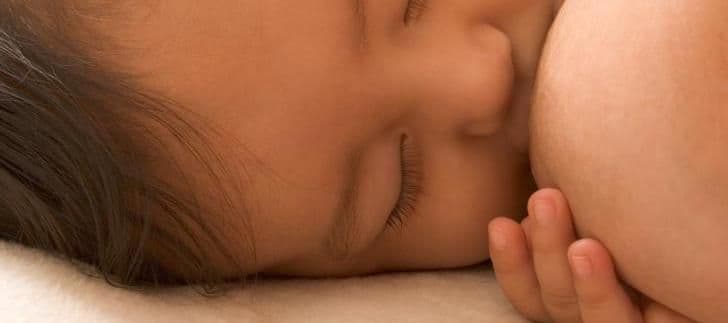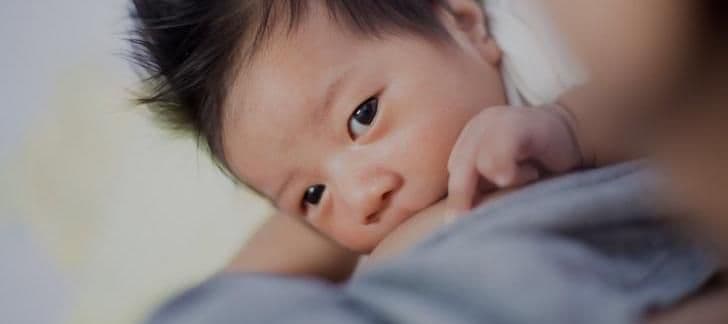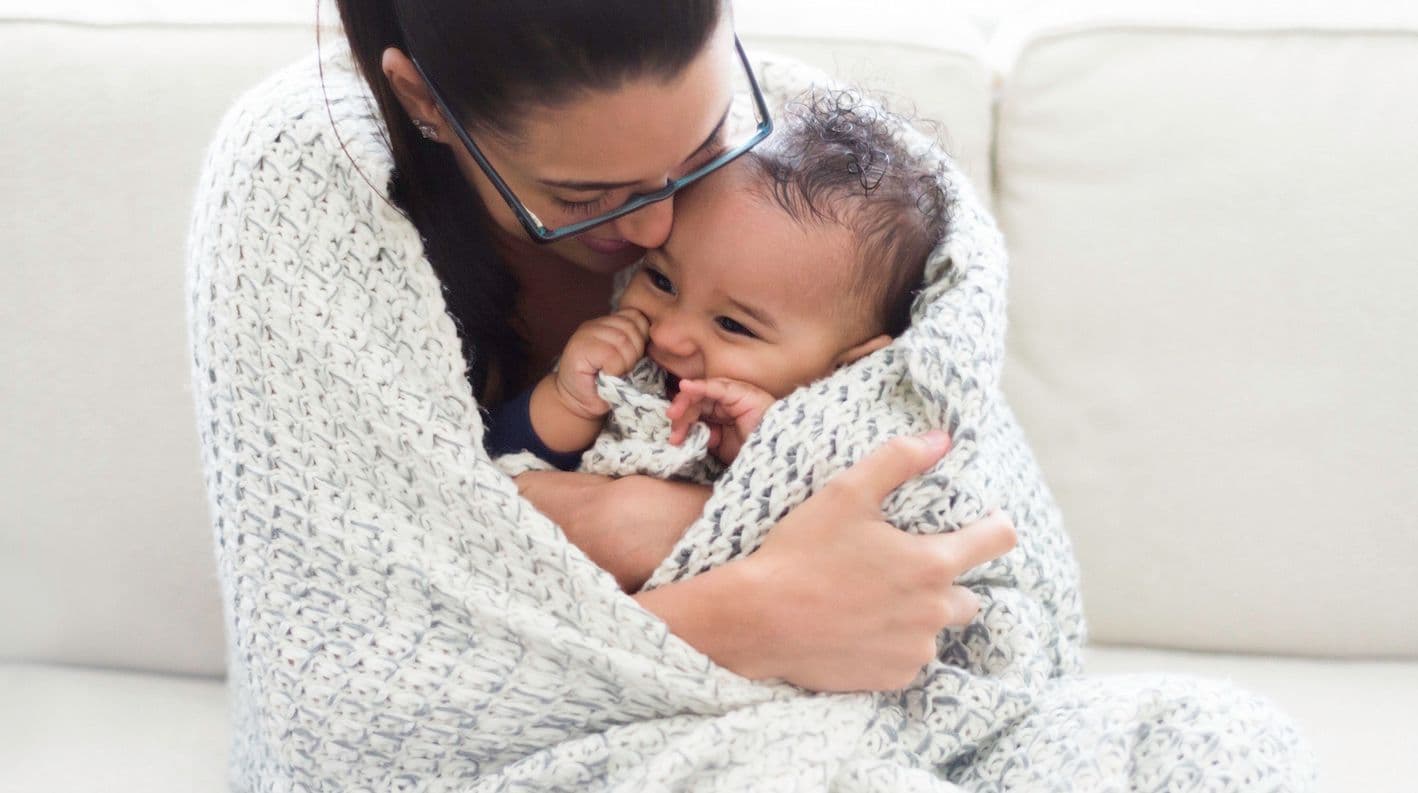Getting Pregnant While Breastfeeding
Breastfeeding
Obie Editorial Team

Can I get pregnant when breastfeeding? Is it a good contraceptive? I just gave birth a few months ago and I'm breastfeeding. It's been several months since my delivery and I'm wondering if I can get pregnant while breastfeeding. I haven't had my first postpartum visit yet.
Do I have to stop breastfeeding if we want to get pregnant?
It's all about ovulation. If you ovulate and you breastfeed, then you can get pregnant. And if you do ovulate then you do not have to stop breastfeeding to conceive, but conception is harder for some women while breastfeeding. Prolactin (breast milk stimulating hormone) may suppress ovulation making it difficult to track fertility and to get pregnant. Some women experience six to 12 months of amenorrhea while breastfeeding (lactation amenorrhea), usually due to not ovulating. Conception can occur before your first postmenopausal period as an egg is released during ovulation, before you start your period
Is breastfeeding a good contraceptive?
Breastfeeding is an imperfect contraceptive. It is not good enough to prevent ovulation and pregnancy. You can get pregnant even if you breastfeed. If you have sex and don't want to get pregnant while breastfeeding, you should use a contraceptive. For pregnancy to happen, ovulation has to happen. While breastfeeding delays ovulation by several months, it still can happen any time and before your period comes back. It is possible to ovulate and get pregnant while breastfeeding though you are less fertile during this time because ovulation may be less likely or not happening at all. You may notice irregular periods or a complete lack of periods, called lactation amenorrhea, for up to one year (longer for some women), especially when you don't ovulate.
The body typically releases at least one egg before you get your first postpartum period so, yes you can get pregnant before your first postpartum period.
How to boost fertility while breastfeeding
There are several ways to boost fertility while breastfeeding. If you already ovulate, then a good method of boosting fertility while breastfeeding is charting – basal body temperature, cervical mucus, and periods, if applicable. Charting gives you a chance to rediscover how your body is naturally cycling each month now that baby’s been born. It also will help you identify if and when you start ovulating again. Ovulation is necessary for getting pregnant.
Some women notice subtle changes in postpartum cycles and others notice dramatic changes making it extremely difficult to know exactly when you’re most fertile. Charting may not help you get pregnant again right away, but it helps you find out about your fertility, when and if you ovulate, and it will allow you to recognize changes in your body as your fertility returns.
Doesn't breastfeeding stop ovulation?
Breastfeeding increases a hormone called 'prolactin' that can negatively influence fertility. The level of prolactin depends on the frequency of breastfeeding. The more you breastfeed, the more likely it is that you won't be fertile. But fertility is not an all-or-nothing thing, and even though you ovulate while breastfeeding, there is probably still a decrease in fertility.
After delivery, you will first ovulate, but not have the proper hormone levels for fertilization; then you will ovulate and fertilization may occur, but you still may not have the proper hormone levels for implantation; finally, your hormones will be adequate enough for ovulation, fertilization, and implantation.
It's not true that breastfeeding effectively prevents pregnancy. Once you resume sexual relations after delivery, there is a chance you could get pregnant, whether you are breastfeeding or not, with or without having had your first menstrual period.
Unless you don't mind having another baby close to this one, it's a good idea to use contraception right away before you start sexual relations.
When will I ovulate again after pregnancy and while breastfeeding?
During pregnancy, you cannot get pregnant because you don't ovulate. The average woman resumes ovulation and becomes fertile again within 4-8 weeks after delivery.
Unfortunately, the false belief that women who breastfeed cannot get pregnant has lead to many unintended pregnancies. It's true that breastfeeding affects fertility for a short time, delaying ovulation on average for only another 4-8 weeks. However, the average breastfeeding woman ovulates within 10-12 weeks after delivery, and by 6 months after delivery, the majority of breastfeeding women will have resumed ovulation.
There are individual variations, however, and averages can be misleading. You can't predict exactly when you start ovulating after delivery, and some breastfeeding women have been known to ovulate as early as 4 weeks and as late as 18 months after delivery.
The way you breastfeed establishes fertility to a certain extent, and ovulation and fertility are more likely to return if:
- you are not completely breastfeeding (more than 4-6 hours between feedings) and you are supplementing early, or
- your baby is older than 6 months, or
- your menstrual period has returned
- If even one of these events is not met, there is a high risk of ovulating and getting pregnant.
Can you get pregnant without having had your menstrual period yet?
Absolutely! Ovulation and pregnancy can happen before getting a period.
In order to get pregnant, you need to ovulate. And many women falsely believe that if they haven't had their period yet after delivery they haven't ovulated and cannot get pregnant. Nothing is further from the truth.
Ovulation and fertility usually happen before you have the first period after delivery, not afterward. Your menstrual period usually comes in response to ovulation, not the other way around, so by the time you see your first period, chances are that you have already ovulated. Don't wait for your first menstrual period to start contraception.
If you don't want to conceive shortly after delivery, birth control should be started as soon as you resume sexual relations independent of whether you have had your menstrual period or not.









